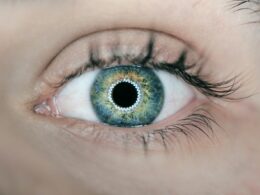If you’re using sperm donation to start a family, choosing the right donor is an important step. Not only do you want to choose someone who shares your desired traits, but you also need to consider the legal implications of the process.
Luckily, finding a sperm donor is easier than ever. This article will cover all the basics you need to know.
What is a sperm donor?
A sperm donor is a man who provides his semen so that it can be used to inseminate an egg and conceive a child. A sperm donor can donate to someone who is known to him or anonymously, and both options require careful screening for infectious diseases like HIV, hepatitis, and gonorrhea. Sperm donations can be arranged through sperm banks or private arrangements through brokers that connect donors with recipients.
Using donated sperm is a common option for individuals and couples who are trying to conceive. The American Society for Reproductive Medicine recommends that couples or individuals who use a sperm donor meet with a mental health professional before beginning the process to help them cope with any psychological issues related to parenting a child with a different biological father.
When searching for a sperm donor, couples should consider the traits that are most important to them, says Dr. Insogna. Some may prioritize physical attributes, such as hair and eye color, height or build, while others might want to focus on a donor’s hobbies, interests, or education. A couple also needs to decide how involved they want the donor to be in their child’s life, as laws vary by state. Regardless, both known and anonymous donors must undergo the same initial and periodic screening to prevent the transmission of disease.
Why do I need to be a sperm donor?
There are many reasons why people choose to use sperm from a donor. Some people may not be able to produce sperm at all, or they could have fertility problems. Others may be concerned about passing an inherited disease to their child through natural conception. Sperm donation is also a great option for gay and lesbian couples who want to start a family together.
Men who want to become sperm donors are screened for physical traits, height, and education level. Some sperm banks also require that a man be CMV (cytomegalovirus) negative to reduce the risk of a congenital CMV infection in the offspring. The Food & Drug Administration requires that all men who donate sperm are tested for sexually transmitted diseases and other infectious diseases before they can provide sperm to be used in artificial donor insemination.
Some sperm donors may be known to the person or couple who is using the sperm, while others are anonymous. The laws on this vary by state, but a known donor is not generally allowed to have parental rights or financial obligations to the child born from his donation. Known donors are often required to sign an agreement with the sperm bank that specifies this.
The decision to be a sperm donor is not one to be taken lightly, as it has far-reaching implications for the women who receive your sperm, any children they have, and you and your own family. You should weigh all of the options carefully, and seek legal advice before you make any decisions.
How do I become a sperm donor?
Whether you are in a same-sex relationship, have fertility issues or are single and looking to build your family, donor sperm may be the answer for you. Donated sperm can be used to fertilise eggs for a range of assisted reproductive techniques including artificial insemination and in vitro fertilization (IVF).
Sperm donors are typically male, between the ages of 19 and 39, and usually undergraduate and graduate students or professionals. They undergo a rigorous screening process that includes character and personality evaluation, genetic testing, health history exam and physical examinations, and give blood and urine samples as well as uncompensated semen for sperm testing.
For sperm to be used, it must be free of infections such as HIV, hepatitis, gonococcus and gonorrhea. It must also be cytomegalovirus (CMV) negative to reduce the risk of a congenital CMV infection in children born from the donated semen.
Sperm donors are paid compensation for their donations based on the sperm bank they work with. The sperm banks will provide medical and psychological support throughout the donation process. Donors can choose whether they want to remain anonymous or be known to the child(ren) born from their sperm. If they want to be known, a legal agreement is drawn up outlining their rights and responsibilities. In the past, sperm donors have been able to keep their identity secret until their offspring reached 18. The law around this changed in 2005 and now any child conceived from a known sperm donor can request information about their biological father at age 18 or later.
What is the process of becoming a sperm donor?
Becoming a sperm donor requires a lot of commitment, time and expense. There are many sex, health and genetic screenings, interviews, physicals and medical tests. Some sperm banks also do criminal background checks. Then there are storage, shipping and insemination costs. If you’re known, your attorney will draft an agreement that outlines your rights and responsibilities to children conceived with your sperm.
You will also be required to provide blood, urine and semen samples. Often you will be asked to write a statement about your goals, hobbies and accomplishments to be shared with people who may be considering using your sperm. You will be asked to agree that any children born from your sperm can contact you at age 18.
Sperm donors are men of a wide range of ages and backgrounds, but most have some level of educational achievement or professional experience. Many of the sperm donors at Cryos New York are students, including graduates from top-tier schools such as NYU, Stanford and Harvard. Others are professionals in fields such as law, the medical profession and public service.





